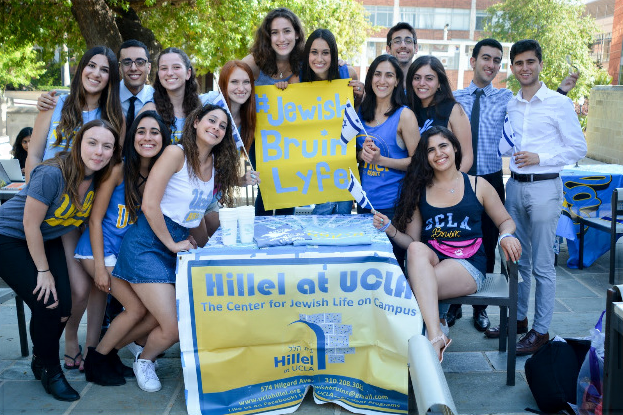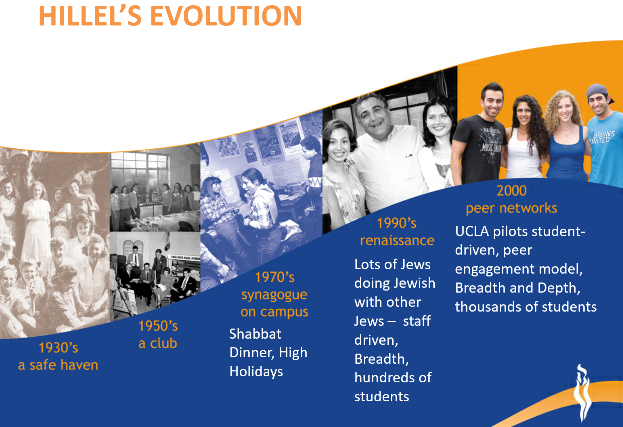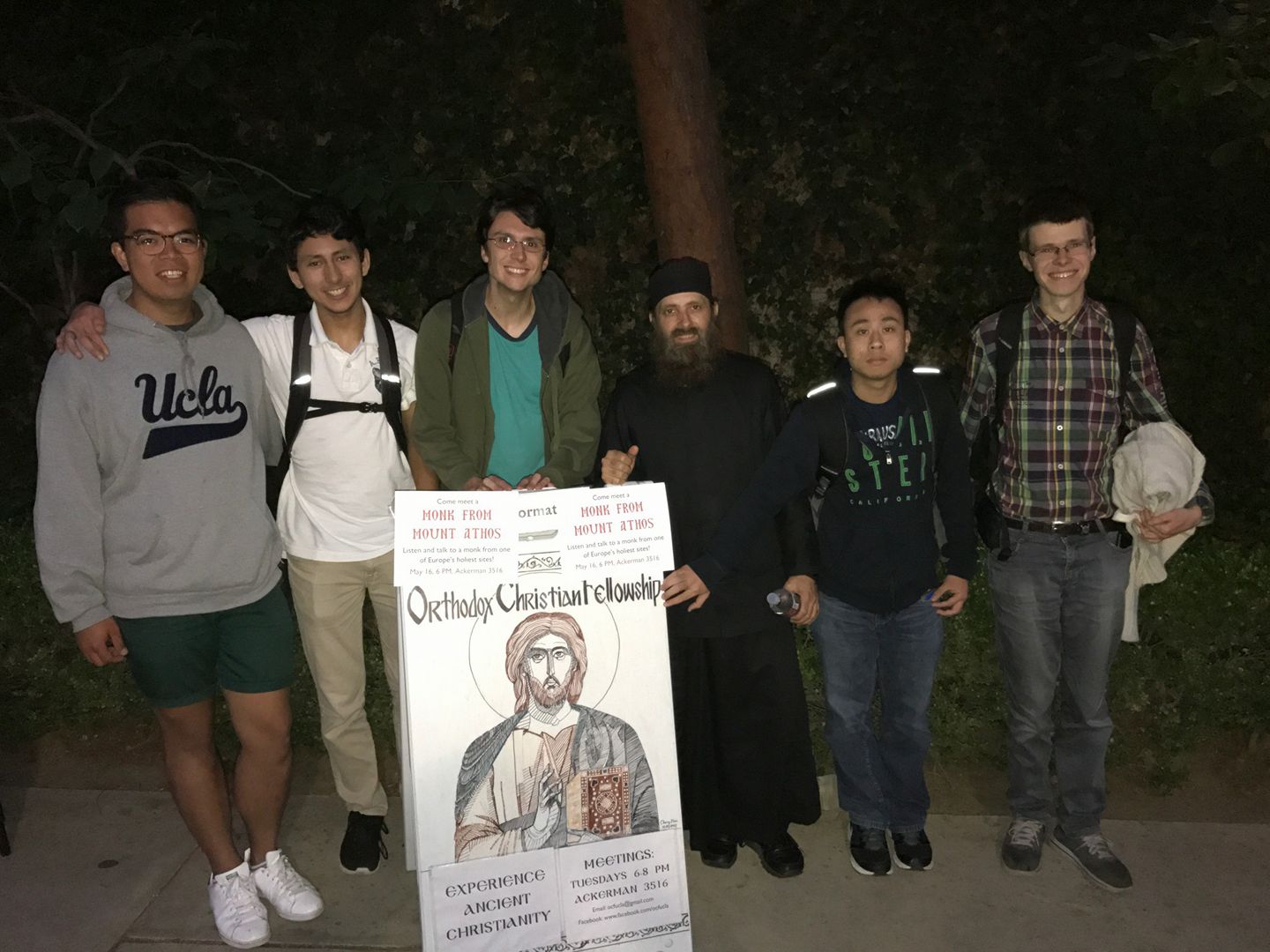Whether for culture, connection or spirituality, religion has played a role within UCLA’s
community since the University was established. In this series, each month we aim
to look at two faith-based organizations on campus and how they have evolved. From
historical events and changes in political climate to the last year of remote instruction,
these groups have persisted and have fostered the spiritual growth of generations of
Bruins.
Hillel at UCLA
Founded in the 1940s, Hillel at UCLA quickly became the center of Jewish life at UCLA, catalyzing a community which is as diverse as it is lively.
From acting as a safe haven and a student club from the 1940s and 1950s to growing and forming peer networks in the 2000s, the organization has constantly adapted to the current needs of students, from holding more events on mental health support to community awareness on anti-semitism.

Hillel at UCLA students
The organization’s most notable development was the completion of its 22,000 square foot center — which includes a Coffee Bean and Tea Leaf and a dining hall — in the early 2000s. It has increased student engagement by over 400%. However, the pandemic has undoubtedly affected Hillel’s onsite operations significantly.
Nevertheless, Hillel has continued to host programs that comply with COVID-19 guidelines while exploring opportunities for safe in-person interaction. Currently, the organization has a weekly schedule of virtual student programs ranging from cohort-based Jewish learning to wellness-focused events, as well as Israel-based events and cultural celebrations.
Hillel has also transitioned its dining hall to serve students in person and outdoors, a vital change given that menu options address the needs of those who follow kosher and halal diets, which satisfy the requirements of Jewish and Islamic law, respectively. Additionally, in partnership with the University Religious Conference at UCLA — the oldest interfaith organization in Los Angeles — Hillel handed out 750 vouchers for free meals to students experiencing food insecurity.
Alumni and the wider Los Angeles Jewish community are able to take part in numerous activities at Hillel throughout the year. From the high holidays to art exhibitions, the center interacts with 1,800 current students and 1,200 community members and alumni on a regular basis.
Rachel Sumekh ’12, the founder and CEO of Swipe Out Hunger, an organization which started at Hillel and is now the leading nonprofit in combating food insecurity amongst college students, had this to say about her experience: “My time at Hillel helped me to understand that changing the world didn’t have to be one part of my Jewish identity, it could be the entire bedrock of it. Time I spend fighting inequality is time spent being Jewish. I learned that if you see something missing in your community, it may be up
to you to build it… When I began to launch Swipe Out Hunger during undergrad, Hillel offered me encouragement, guidance and resources that I needed — from help printing posters to bridging meaningful connections with community organizations.”
While Hillel has realigned and readjusted its practices throughout the pandemic, a large variety of the organization’s offerings stem from and rely on face-to-face interactions, which is why staffers and students are keen on returning to a “new normal” come fall. In fact, overseas trips and conferences, such as Birthright Israel, Fact Finders and Alternative Spring Breaks are slated to start as early as September.

Orthodox Christian Fellowship at UCLA

Orthodox Christian Fellowship visit with Father Justin from the Athonite Monastery in Zographou
Following the Second World War, a student movement began around growing Orthodox communities on college campuses, with fellowships forming at various universities from McGill University in Canada to Columbia University in New York. Recognizing the rise in student-driven Orthrodoxy, the Standing Conference of Canonical Orthodox Bishops in the America (SCOBA) formalized the Church’s campus programs in 1965 by establishing the Campus Commission to oversee and coordinate the development of college fellowships. Hundreds of chapters sprung up as a result.
The OCF at UCLA was first established in 2009; however, the organization diminished in size as members graduated and was then reorganized in 2015. Since then, the fellowship has focussed on a variety of service and faith-oriented activities, chiefly Bible study, said Valentin Slepukhin, a current physics graduate student involved with the fellowship.
However, aside from engaging in faith-based discussions, the OCF has established strong bonds with the UCLA Coptic Club and the campus’ Catholic community, as well as held gatherings on Easter and hosted speaker panels. Additionally, since 2019, the fellowship has started helping those experiencing homelessness, Slepukhin added.
In order to keep in line with social distancing measures, the OCF shifted to holding Bible study online via Zoom. The convenience of online meetings meant that the organization could hold sessions more often and even attract a larger number of attendees outside of UCLA, Slepukhin said.
While alumni helped in reestablishing the OCF, the fellowship largely consists of current students. In fact, alumni connected chapter members with the national OCF, Slepukhin said.
“Basically, we went to the road that was built before us,” he said.
Post the pandemic, the organization may continue hosting online Bible study given the great response garnered, as well as place greater focus on serving the homeless community in Los Angeles, Slepukhin added.
If you have information to share about Bruin Faith Groups, send us a comment at ConnectFeedback@alumni.ucla.edu.